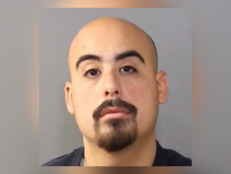After Ledell Lee’s Execution, Lawyers Say Murder Weapon DNA Could Belong To Someone Else
“My dying words will always be, as it has been, ‘I am an innocent man,’” Ledell Lee said before he was put to death.
![Ledell Lee [via ACLU Arkansas]](http://investigationdiscovery.sndimg.com/content/dam/images/investigationdiscovery/crimefeed/legacy/2021/05/ledell-lee-052621.png.rend.hgtvcom.616.462.suffix/1622071772245.png)
Ledell Lee [via ACLU Arkansas]
New DNA evidence in the case of a man put to death in Arkansas several years ago could bolster his claims he was not guilty of murder.
On April 20, 2017, Ledell Lee was executed by lethal injection at age 51 for the 1993 killing of Debra Reese. The 26-year-old victim was found strangled and bludgeoned to death at her home in Jacksonville, Arkansas.
“My dying words will always be, as it has been, ‘I am an innocent man,’” Lee told the BBC shortly before his execution.
Since his death, Patricia Young has been determined to clear her brother’s name.
In January 2020, Young filed a lawsuit against the city of Jacksonville and the Jacksonville Police Department seeking the release of physical evidence related to the crime so it could be submitted for DNA testing and fingerprint analysis.
According to the lawsuit, the state of Arkansas “convicted Mr. Lee by vastly overstating the nature and significance of the limited forensic testing conducted at that time, including tests that its own experts admitted were ultimately ‘inconclusive.’”
The suit also claimed Lee had a solid alibi and prosecutors “relied heavily on alleged identifications of Mr. Lee by neighborhood eyewitnesses, even though that testimony contained notable inconsistencies in the witnesses’ descriptions of the perpetrator.”
In court documents, Young argued the racially-charged atmosphere at the time her brother was found guilty at his second trial — the first resulted in a hung jury — also may have contributed to his conviction.
“Mr. Lee, a Black man charged with the vicious beating and murder of a white woman in her home, was tried under the shadow of the O.J. Simpson prosecution and trial,” which concluded a week before Lee’s second trial started, the lawsuit states. “The Simpson verdict shocked and angered many white Americans and polarized the nation along racial lines. It’s difficult to imagine that any jury could be truly objective in considering the evidence against Mr. Lee at that particular moment in time.”
In response, The New York Times reported, Jacksonville city officials released previously untested evidence, including a blood-covered wooden club and white shirt recovered from the crime scene.
Lawyers with the Innocence Project and the American Civil Liberties Union recently said tests show genetic material found on the murder weapon belongs to a male — but not Lee — and the results have now been submitted to a criminal database.
Governor Asa Hutchinson defended Lee’s execution, saying it was his “duty to carry out the law” in Arkansas and calling new DNA evidence recovered from the weapon “inconclusive,” according to The New York Times.
However, Lee’s sister remains optimistic, writing in a statement: “We are glad there is new evidence in the national DNA database and remain hopeful that there will be further information uncovered in the future.”









